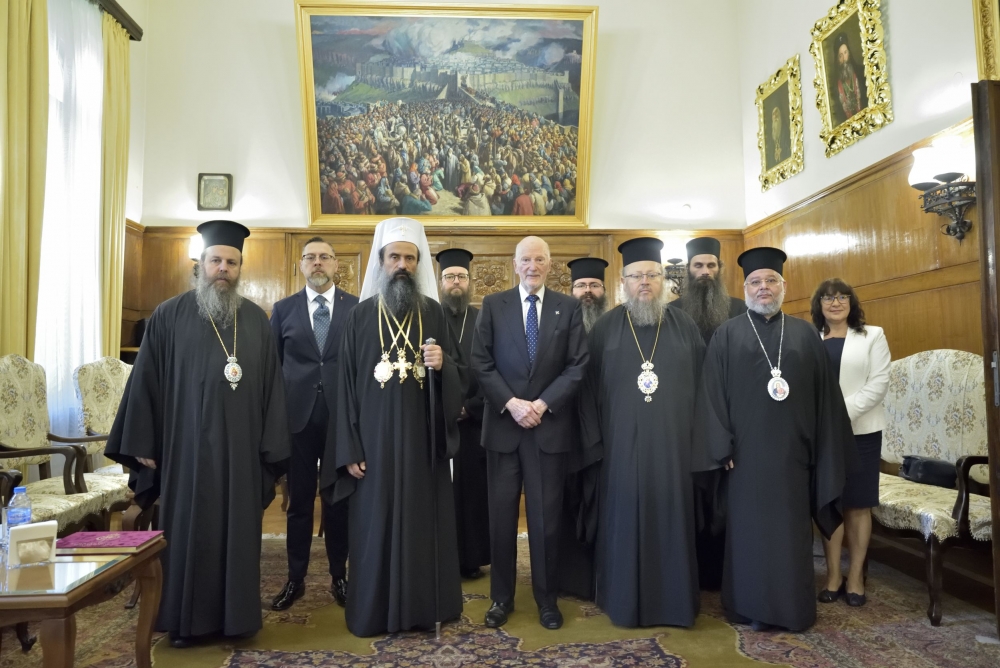
In a significant moment for Bulgaria, the newly appointed Patriarch Daniel of the Bulgarian Orthodox Church recently met with Tsar Simeon II in what marks a historic encounter between spiritual and royal leadership.
Patriarch Daniel, who ascended to his role earlier this year, visited the former Bulgarian monarch at his residence, where they engaged in discussions reflecting on the country's spiritual heritage and its future. This meeting holds particular significance as it symbolizes a bridge between Bulgaria's past and present, with both figures emphasizing the importance of unity and continuity in national identity.
Tsar Simeon II, who reigned as Bulgaria's last monarch before the country transitioned to a republic, expressed his support for Patriarch Daniel's efforts in fostering religious harmony and national unity. The discussions between the two leaders reportedly touched upon various topics, including the role of the Orthodox Church in contemporary Bulgarian society and its contributions to education and cultural preservation.
In another notable development, Patriarch Daniel also engaged with Bulgarian political leaders regarding the potential introduction of religious education into the national school curriculum. The discussions centered around the importance of providing students with a comprehensive understanding of Bulgaria's religious heritage and its impact on societal values.
The proposal to integrate religious education into schools has sparked debate among various stakeholders, with proponents arguing that it would promote cultural awareness and moral values rooted in Bulgaria's Orthodox Christian tradition. Critics, however, have raised concerns about the potential implications for secularism and the need to ensure that any curriculum additions respect the diversity of religious beliefs within the country.
Furthermore, Bishop Pahomios of Vranitsa was recently appointed as assistant bishop to Patriarch Daniel, reinforcing the patriarch's commitment to strengthening the church's organizational structure and outreach efforts. Bishop Pahomios brings with him a wealth of experience in pastoral care and administrative duties, having served in various capacities within the Bulgarian Orthodox Church.
The appointment is seen as a strategic move to enhance the church's presence in regions where spiritual guidance and support are particularly needed. It reflects Patriarch Daniel's proactive approach to addressing the evolving needs of the church community while maintaining its traditional values and teachings.
As Bulgaria navigates through these discussions and appointments, the broader implications for its societal fabric and religious landscape remain under scrutiny. The outcomes of these initiatives are likely to shape the country's cultural and educational policies, influencing future generations' understanding of their heritage and identity.
So, the meeting between Patriarch Daniel and Tsar Simeon II underscores a pivotal moment in Bulgaria's history, highlighting the ongoing dialogue between spiritual and secular authorities in shaping the nation's future. It also reflects the Bulgarian Orthodox Church's role in navigating complex societal issues while preserving its cultural legacy and moral teachings.


0 Comments